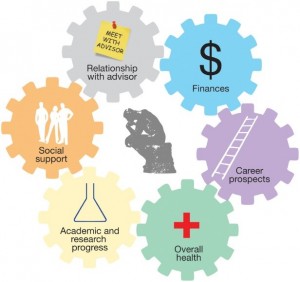I am a second-year doctoral student, and have not been able to build a positive relationship with my advisor. My emails go unanswered and our meetings are infrequent, short, and brisk. I feel that this person is unhelpful and even detrimental to my progress. I have tried communicating my discomfort with this relationship to my advisor, yet nothing has changed. I am wondering, how do I know when it’s time to find a new advisor? And, if I decide to break up with my advisor, how can I do so amicably? – Sincerely, Unsupported
This answer has been published after consultation with the Office of the Ombud.
Hi Unsupported,
I’m so sorry you’ve been struggling with this. Having a strong advising relationship can play an important role in your success in grad school, so I hope you can find an advising situation that meets your needs.
For anyone starting off in an advising relationship or struggling to develop a constructive relationship with their advisor, I strongly recommend the Graduate School’s resources on “Managing Up.” Managing Up, in the context of an advising relationship, refers to actively and thoughtfully defining and shaping your relationship with your advisor. It may involve reflecting on your goals for the relationship, setting clear expectations about what you are looking for in the relationship, and setting the tone and agenda for your meetings with said person.
That being said, if you’ve already tried to address some of your concerns about feeling unsupported to your advisor and haven’t had any results, it may be time to seek a third-party intervention. The Office of the Ombud is a great place for you to explain your situation in full detail, and create a plan for how to proceed. This plan may or may not involve breaking up with your advisor. The Ombud service is confidential, so approaching this service will allow you discuss your situation in full detail, and to share the information with someone who has institutional knowledge and experience helping people navigate challenging situations.
No matter what happens with your current advisor, I strongly encourage you to start cultivating additional supports now. At the Graduate School, we advocate for students to develop “mentoring teams:” a network of support that may include advisors, PIs, professors from inside or outside your department, and more. A mentoring team can help you in personal, academic and professional goals, and can compensate for some of the deficiencies in your advising relationship.
Best of luck,
The Grad School Guru
